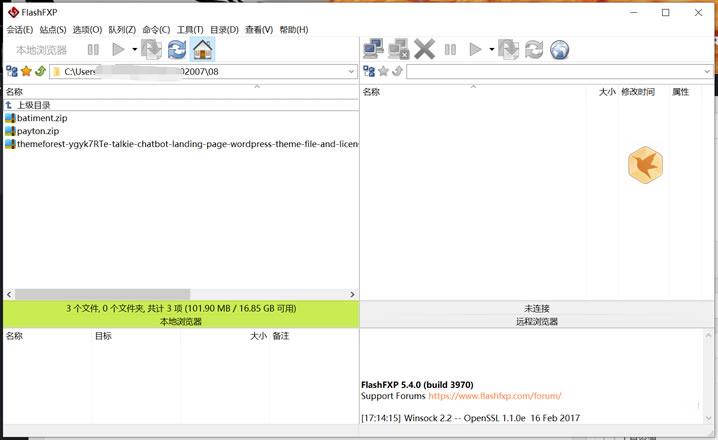changeAirAsia Mystery Key Questions About QZ8501
By Tracy Connor
The investigation into the disappearance of AirAsia Flight 8501 has centered on one moment:a request by the pilot to climb 6,000 feet because of weather,which was denied by air trafficc ontro l.
But what the crew was experiencing before that—which led them to make the request—isunknown.And what happened to the plane in the following minutes also remains a mystery,two days after the aircraft vanished from radar.
Indonesian officials have said they believe the Airbus jet went straight to the bottom of thesea,presumably killing all 162 on board.But Greg Feith,a former investigator for theNational Transportation Safety Board and NBC News'aviation expert, says there are manyquestions about the incident that still need to be answered.
Did weather really take down the jet?
It's possible,of course,but a half-dozen other planes passed through the storm-struck areawhere the AirAsia jet vanished. "What did those pilots know that the accident crew didn'tknow?"Feith wonders. "What were they using for decision-making that allowed them to getthrough that line?"
The weather system was big, so climbing from 32,000 to 38,000 feet would not have allowedthe QZ8501 pilots to completely avoid it,he said.But the request for a 6,000-foot change—as opposed to, say,2,000 feet—had to be rooted in a concrete concern.
He noted that it's customary for pilots to report unusual conditions to air traffic control andthat any other cockpit on that frequency would hear them.Feith wants to know whatwarnings the AirAsia crew heard about turbulence or heavy rain and whether they promptedthe altitude change request.
Or did they—along with the air traffic controllers—think they could safely get through thestorm,just like the other planes did,but conditions deteriorated too quickly? "Thunderstormslike this are very dynamic,"Feith said. "It's a high-energy situation."
Who was in control of the plane?
Typically, the crew of a commercial airliner will fly it on autopilot as long as possible,evenwhen making an altitude change.But the j et could have hit turbulence from the storm thatbecame too much for autopilot to handle—forcing the pilot to take over,Feith said.Or thepilot could have decided he could do a better job of responding to the changing weatherconditions.
Why haven' t they been able to find the jet?
where it went down.A very dense thunderstorm could have prevented the signal frombouncing back,Feith said.A change in the plane's attitude—whether it is pitching up ordown or banking to the left or right—could also interfere with radar.As a result, the planecould have flown on for some minutes off radar before it crashed.
After the crew lost control, the aircraft would not necessarily have plunged straight downinto the water. It could have gone into a spiral,reversed course or shot off in any directionbefore hitting the water,making for a large search area. If the plane was intact when it hit thewater, there will be less debris than if it broke up in midair.
Did the plane have ACARS?
The Aircraft Communications Addressing and Reporting System sends flight data fromsensors to ground stations in short bursts,providing vital clues in the case of an accident.When Air France 447 crashed into the Atlantic in 2009,putting its black boxes out of reachuntil 2011, it was ACARS messages that revealed the pilots were getting incorrect speed data."I would love to know if AirAsia had an ACARS subscription and if not,why not?"Feithsaid.
But in the case of another flight,Air France Flight 447,which disappeared off the coast ofBrazil in 2009, investigators had access to a cascade of error messages that were sent overthe ACARS system that indicated,among other issues,a problem with the plane's airspeedsensors that ultimately disabled the plane's autopilot system.
AirAsia and local officials have so far not divulged much technical information about theflight,but Indonesia on Monday asked U.S. investigators,via the State Department, to assistin the search—so perhaps more knowledge will be forthcoming.
Friends, Relatives Await News on
Missing AirAsia Jet
NBC News
Tracy Connor
Tracy Connor is a senior writer for NBC News.She started this role in December,2012.Connor is responsible. . .Expand Bio
- changeAirAsia Mystery Key Questions About QZ8501相关文档
- 飞机亚航QZ8501航班失联23小时 搜救工作正全力展开
- 搜救亚航失事飞机已找到 四大原因致亚航qz8501较马航mh370更快发现
- opposedAirAsia Mystery Key Questions About QZ8501
- 印尼.2014年空难频发:亚航QZ8501航班
- 事故qz8501调查报告[最新版]
- qz8501QZ8501坠机原因是什么
VoLLcloud(月付低至2.8刀)香港vps大带宽,三网直连
VoLLcloud LLC是一家成立于2020年12月互联网服务提供商企业,于2021年1月份投入云计算应用服务,为广大用户群体提供云服务平台,已经多个数据中心部署云计算中心,其中包括亚洲、美国、欧洲等地区,拥有自己的研发和技术服务团队。现七夕将至,VoLLcloud LLC 推出亚洲地区(香港)所有产品7折优惠,该产品为CMI线路,去程三网163,回程三网CMI线路,默认赠送 2G DDoS/C...

NameCheap优惠活动 新注册域名38元
今天上午有网友在群里聊到是不是有新注册域名的海外域名商家的优惠活动。如果我们并非一定要在国外注册域名的话,最近年中促销期间,国内的服务商优惠力度还是比较大的,以前我们可能较多选择海外域名商家注册域名在于海外商家便宜,如今这几年国内的商家价格也不贵的。比如在前一段时间有分享到几个商家的年中活动:1、DNSPOD域名欢购活动 - 提供域名抢购活动、DNS解析折扣、SSL证书活动2、难得再次关注新网商家...

FlashFXP FTP工具无法连接主机常见原因及解决办法
目前,我们都在用哪个FTP软件?喜欢用的是WinSCP,是一款免费的FTP/SFTP软件。今天在帮助一个网友远程解决问题的时候看到他用的是FlashFXP FTP工具,这个工具以前我也用过,不过正版是需要付费的,但是网上有很多的绿色版本和破解版本。考虑到安全的问题,个人不建议选择破解版。但是这款软件还是比较好用的。今天主要是遇到他的虚拟主机无法通过FTP连接主机,这里我就帮忙看看到底是什么问题。一...

-
博客外链求博客外链方法天天酷跑刷积分教程天天酷跑积分怎么获得 天天酷跑刷积分方法百度抢票浏览器现在火车票越来越难买了,新版百度手机浏览器,除了抢票外,还有什么其他功能吗?申请证书求高手教下怎么申请证书qq怎么发邮件如何通过QQ发送邮件雅虎天盾我机器上有瑞星杀毒和防火墙 我用雅虎天盾来查杀木马怎样?分词技术什么是seo分词技术系统分析员如何成为系统分析师?虚拟机软件下载求一个免费虚拟机软件!!!请发送下载网站给我关闭qq相册图标在不删除照片的情况下如何关闭QQ相册图标